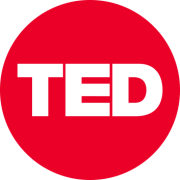https://blog.ted.com/rewriting-the-menu-notes-on-session-3-of-ted-countdown-2024-dilemma-series/
- |
Session 3 of the TED Countdown 2024 Dilemma Series centered around not just what we eat, but how we produce it. In four talks and an interview, speakers explore the science, policy and financing of transitioning to sustainably grown crops and meat alternatives.
The event: TED Countdown 2024 Dilemma Series: The future of food, hosted by Lindsay Levin and Nicole Ng
When and where: June 6, 2024 at the TED World Theater in New York City
Speakers: Giles E.D. Oldroyd, Helianti Hilman, Facundo Etchebehere, Peter Dawe, Berry Marttin, Sarah Lake
The talks in brief:
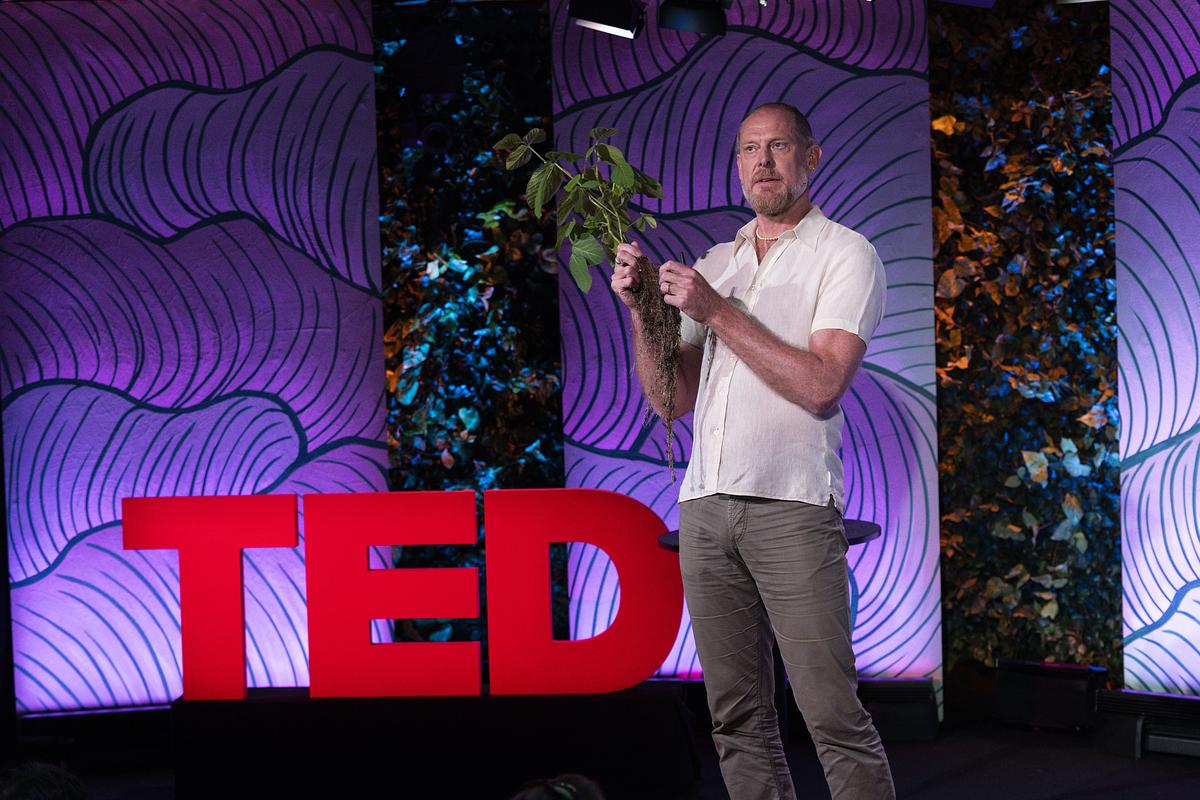
Giles E.D Oldroyd speaks at Session 3 of TED Countdown 2024 Dilemma Series: The future of food, at the TED World Theater in New York City on June 6, 2024. (Photo: Gilberto Tadday / TED)
The soybean plant is excellent at nourishing itself through the fungus and bacteria in its roots, says researcher Giles E.D. Oldroyd. With a bit of genetic reworking, he believes it’s possible to prompt cereal crops to better utilize these naturally appearing microbes and reduce farmers’ reliance on harmful, inorganic fertilizers that can damage surrounding environments.
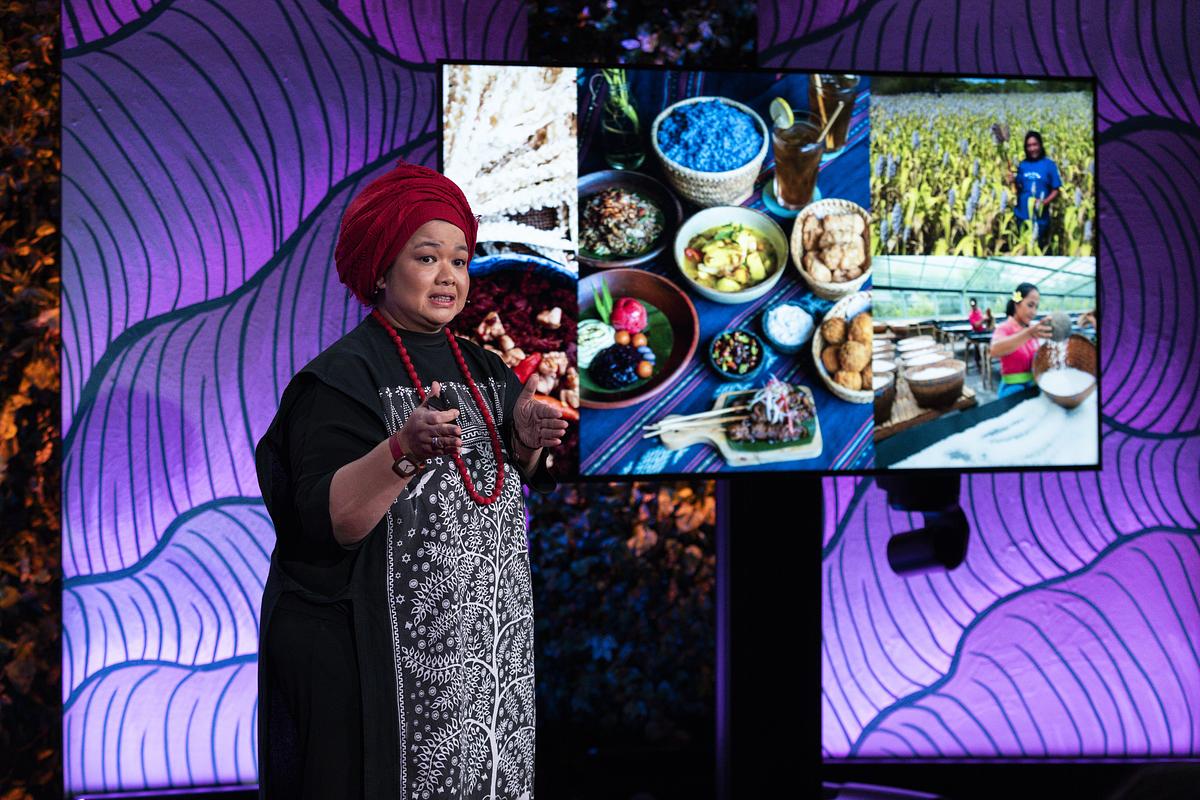
Helianti Hilman speaks at Session 3 of TED Countdown 2024 Dilemma Series: The future of food, at the TED World Theater in New York City on June 6, 2024. (Photo: Gilberto Tadday / TED)
Indonesia has an abundance of heirloom crops, yet malnutrition remains a problem, says lawyer and food biodiversity advocate Helianti Hilman. As founder of Javara, a business dedicated to bringing back forgotten Indigenous Indonesian food, she emphasizes the importance of policies that promote culinary biodiversity to safeguard the environment and nourish communities.
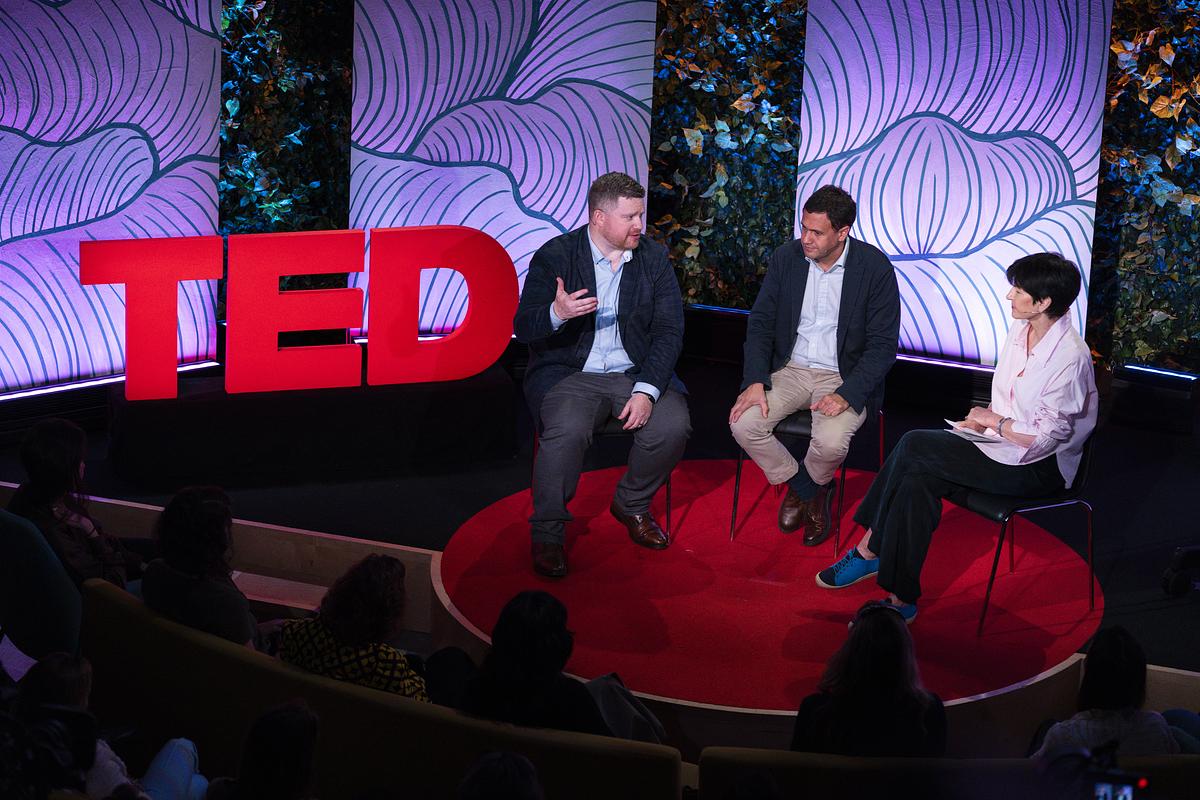
Peter Dawe and Facundo Etchebehere speak with TED’s Lindsay Levin at Session 3 of TED Countdown 2024 Dilemma Series: The future of food, at the TED World Theater in New York City on June 6, 2024. (Photo: Gilberto Tadday / TED)
How can big food companies transition to regenerative agriculture? TED’s Lindsay Levin sits down with Facundo Etchebehere, the SVP of sustainability strategy and partnerships at Danone, and Peter Dawe, the chief growth and strategy officer at McCain Foods, to discuss the progress being made in practice and policy — and what’s possible for the future.
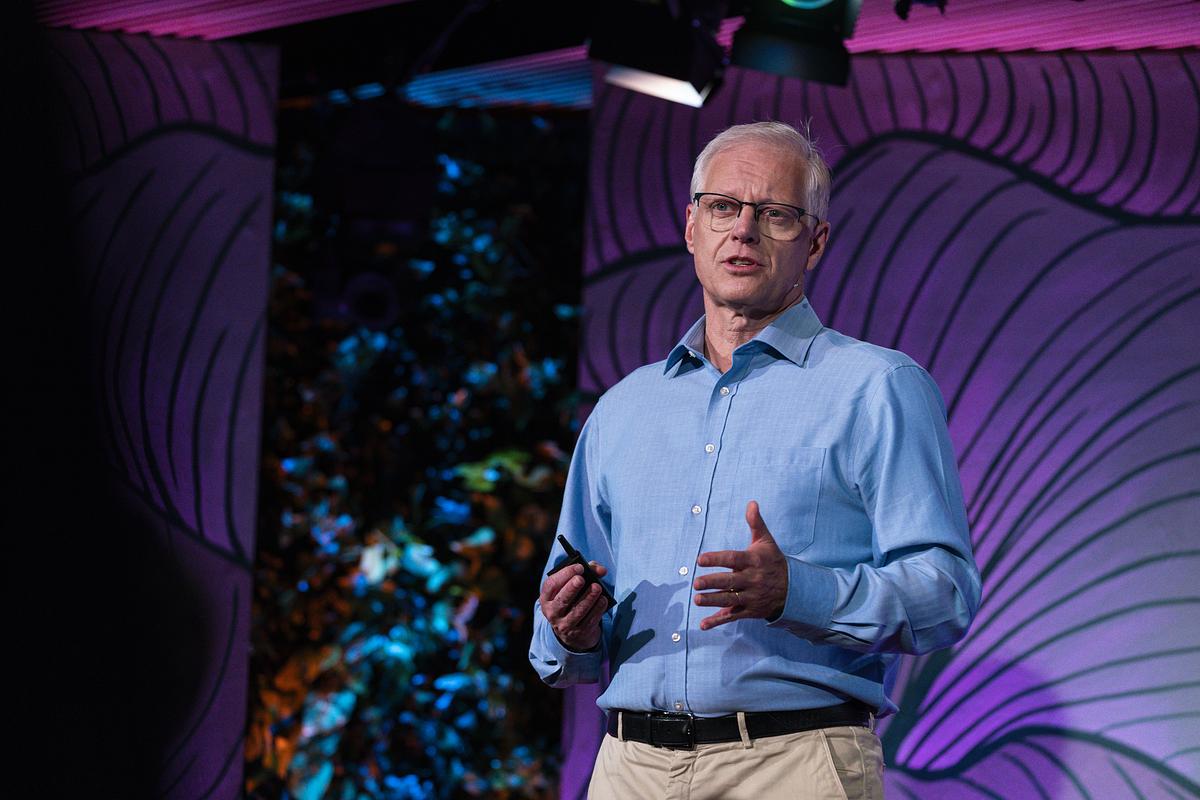
Berry Marttin speaks at Session 3 of TED Countdown 2024 Dilemma Series: The future of food, at the TED World Theater in New York City on June 6, 2024. (Photo: Gilberto Tadday / TED)
“On a farm, cash is king,” says banker and farmer Berry Marttin. He emphasizes why financial support is so crucial to sustainable agriculture, especially as farmers play a central role in maintaining a healthy planet. Marttin proposes incentives like carbon credits to encourage farmers to adopt eco-friendly practices that benefit both the land and those who steward it.
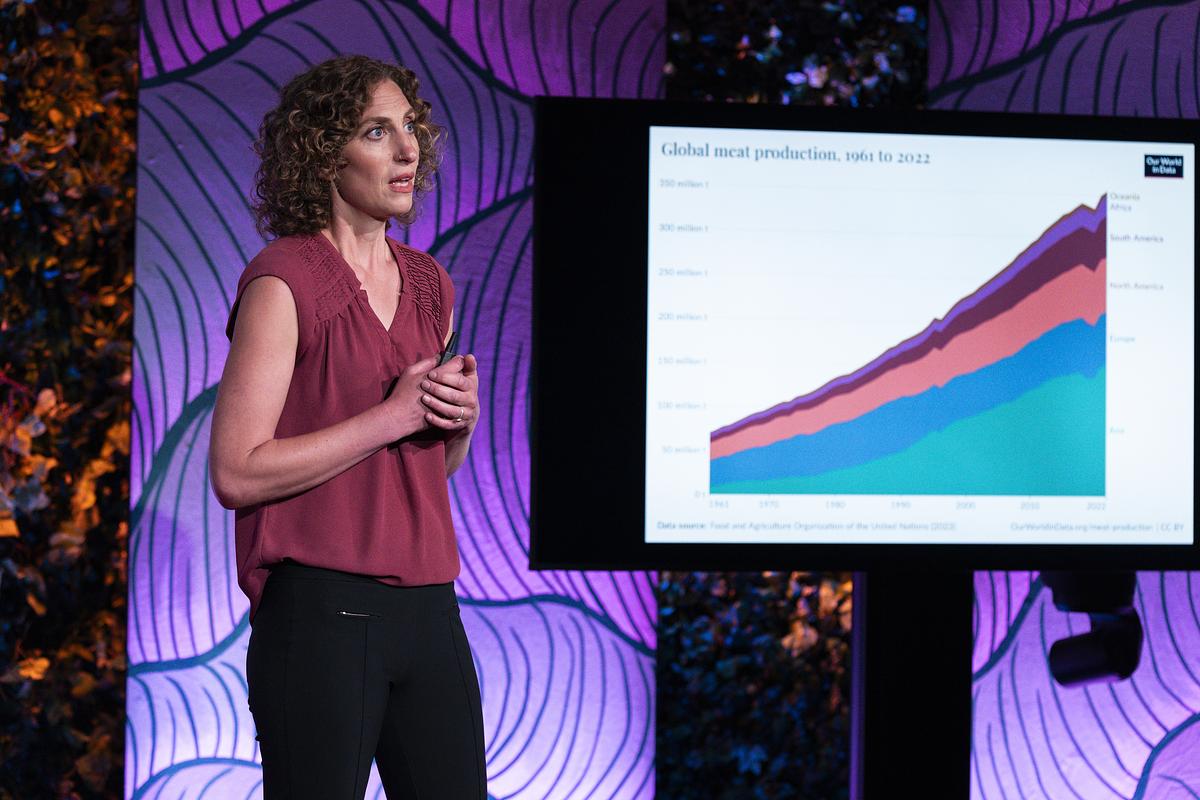
Sarah Lake speaks at Session 3 of TED Countdown 2024 Dilemma Series: The future of food, at the TED World Theater in New York City on June 6, 2024. (Photo: Gilberto Tadday / TED)
What we eat is less about what we choose and more about what’s offered to us, says food and climate expert Sarah Lake. She traces how government subsidies drastically brought down the price of meat, leading to overconsumption and health risks, proposing we apply the same playbook to incentivize consumption of healthier, plant-rich foods.
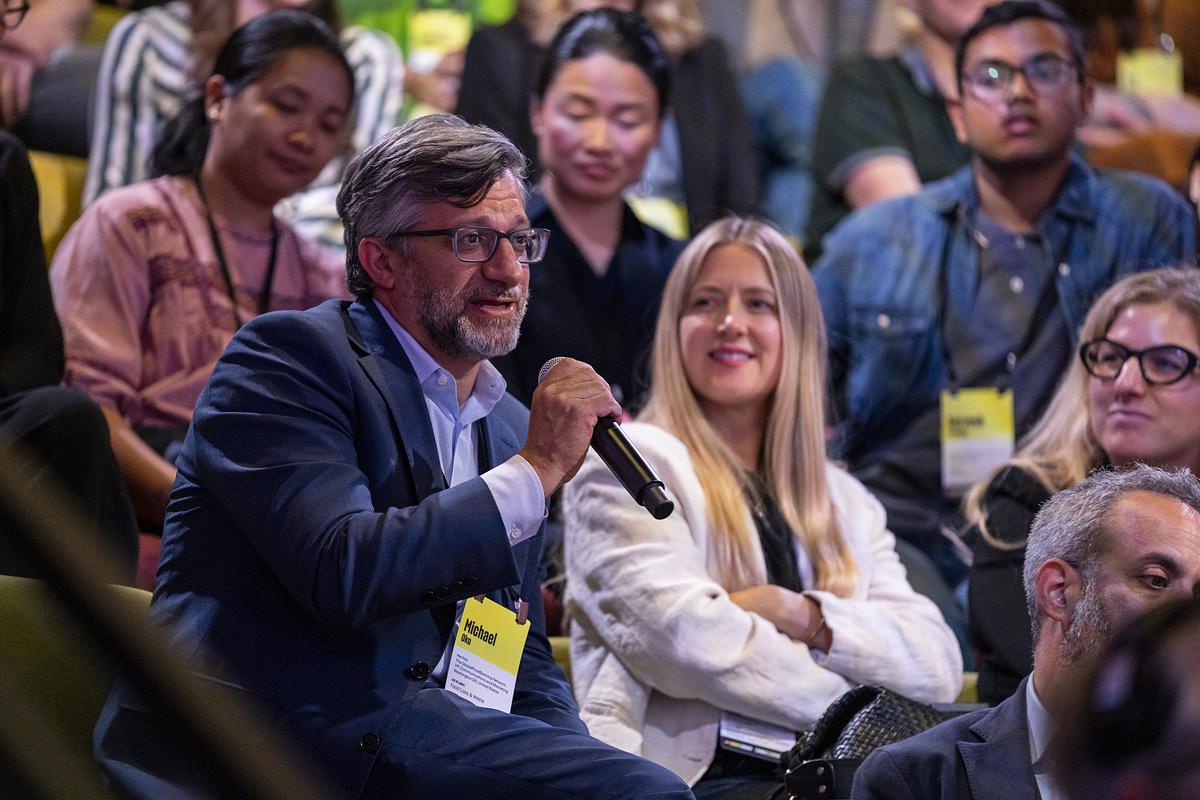
Attendees speak during the Town Hall at Session 3 of TED Countdown 2024 Dilemma Series: The future of food, at the TED World Theater in New York City on June 6, 2024. (Photo: Gilberto Tadday / TED)
At the end of the session, attendees were invited to share reflections on what they’ve heard and raise topics for further discussion. A number of interesting and important subjects were raised, from the need for diverse solutions at the local level to the possibilities around insect protein and food waste as nourishment for both humans and animal feed.
